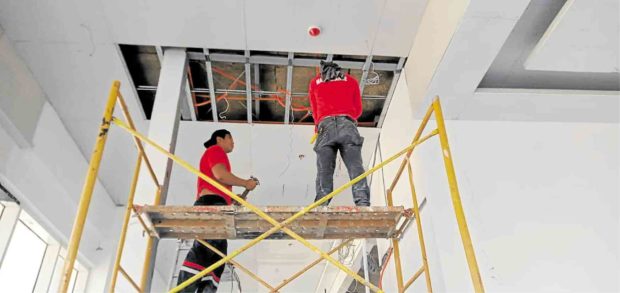While the complexity of construction processes and its management is often given little thought by many developers, it is however probably the single most crucial component vastly affecting the quality of work within the property development cycle.
The workmanship and timely deliveries of project units could make or ruin financial goals and ultimately, a property developer’s name.
Experience and reputation
The timeliness of the construction is clearly dependent on how capable and experienced the construction team is.
A contractor with sufficient state-of-the-art equipment and manpower is bound to deliver as expected and within the agreed budget, quality and calendar. But what would bear the most weight would be a contractor’s integrity in dealing with others and moral reputation.
Your construction partner must also have a reliable framework for communication and time management. In the case of working in a Philippine setting, familiarity to local customs and terminologies could help ease interactions for all parties involved.
One should also take into account a contractor’s foresight in preparing project methodologies for either the hot or monsoon months. It can be quite a leverage knowing which months are more suitable for excavation, foundation works, roofing or interior works for that matter.
Quality assurance vs quality control
Construction is a difficult process in itself. That is why all parties involved must adhere to certain standards and protocols which will determine whether or not the construction process will be executed properly. This is where quality assurance comes in.
Quality control, meanwhile, revolves commonly around six factors, namely absence of defects; aesthetics; durability; ease of maintenance and repairs; flexibility in terms of purpose; and little to no health and safety issues. While site inspections are generally assigned to design consultants, as an invested developer, there should be no harm in seeing for yourself how the construction works are proceeding as planned.
By combining steadfast construction guidelines, quality assurance and regular quality control, a real estate venture would most likely to succeed with repeat business in the future.
Dread of deadlines
Exceeding the projected deadline for a development project affects everyone’s financial situation—from the designers, contractor, to most importantly, the developers and their investors.
With hopes of compensating for budget loss during construction or to keep licenses in good standing, some developers are obliged to adjust price schemes for their property inventories, subsequentially losing market share to competition or passing the shorter end of the stick to end-users—assuming developers could even get away with it in the first place. To some degree, a disadvantaged developer is forced to cut losses by selling that dream development midway to other established developers at bargain prices.
Consider also safeguard strategies early to help anticipate any foreseeable income loss due to implementation.
For those seriously looking into the dynamics of construction, it would be wise to get support from the Philippine Constructors Association (PCA), the governing agency on local construction industry, and get involved with their many activities from seminars, trainings, to fellowship events.
Getting craftsmanship back in the game
Property developers get their revenue either by selling or renting out the property. The construction process must therefore result in high quality, livable spaces aligned with the expectations of the developer’s target market. This is where builders need to bring back craftsmanship to the industry.
Establishing a mutual understanding among the owners, architects and engineers, contractors and construction manager regarding how quality will be ensured on the job site is definitely an important step. What often seems to be missing in coordination meetings is the inclusion of supervisors and foremen or even skilled tradesmen in the discussions, as they are the ones physically implementing the work.
As they say, it is not the tool but the craftsman. A sense of pride and ownership of achieving quality work should be part of every construction project.
Learning the service
From acquiring the land to selling the project to potential buyers, property developers must educate themselves constantly in all aspects of the venture to include the ever enigmatic and technical intricacies of construction.
Keeping oneself abreast of the industry trends, retaining relationship with a sensible network of professionals and construction-related companies, and taking a safer path of learning slowly by experience are the solid foundations to start building up confidence and wisdom in related attributes of the construction world.
The author manages his own architectural and technology studio helping local and international clients looking for unique and future design specialties for hotels, condominiums, museums, commercial and mixed-use township developments with a pursuit for the meta-modern in the next Philippine architecture.



